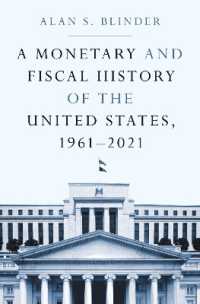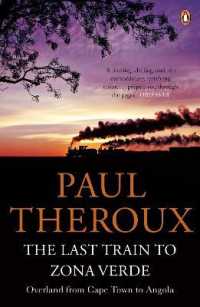- ホーム
- > 洋書
- > 英文書
- > History / American
Full Description
In his new book, Michal Jan Rozbicki undertakes to bridge the gap between the political and the cultural histories of the American Revolution. Through a careful examination of liberty as both the ideological axis and the central metaphor of the age, he is able to offer a fresh model for interpreting the Revolution. By establishing systemic linkages between the histories of the free and the unfree, and between the factual and the symbolic, this framework points to a fundamental reassessment of the ways we think about the American Founding.
Rozbicki moves beyond the two dominant interpretations of Revolutionary liberty—one assuming the Founders invested it with a modern meaning that has in essence continued to the present day, the other highlighting its apparent betrayal by their commitment to inequality. Through a consistent focus on the interplay between culture and power, Rozbicki demonstrates that liberty existed as an intricate fusion of political practices and symbolic forms. His deeply historicised reconstruction of its contemporary meanings makes it clear that liberty was still understood as a set of privileges distributed according to social rank rather than a universal right. In fact, it was because the Founders considered this assumption self-evident that they felt confident in publicising a highly liberal, symbolic narrative of equal liberty to represent the Revolutionary endeavour. The uncontainable success of this narrative went far beyond the circumstances that gave birth to it because it put new cultural capital—a conceptual arsenal of rights and freedoms—at the disposal of ordinary people as well as political factions competing for their support, providing priceless legitimacy to all those who would insist that its nominal inclusiveness include them in fact.








